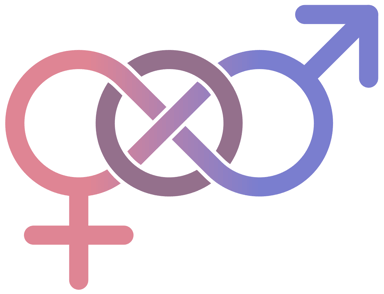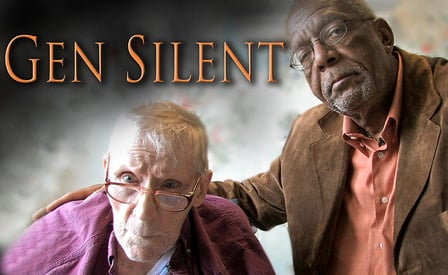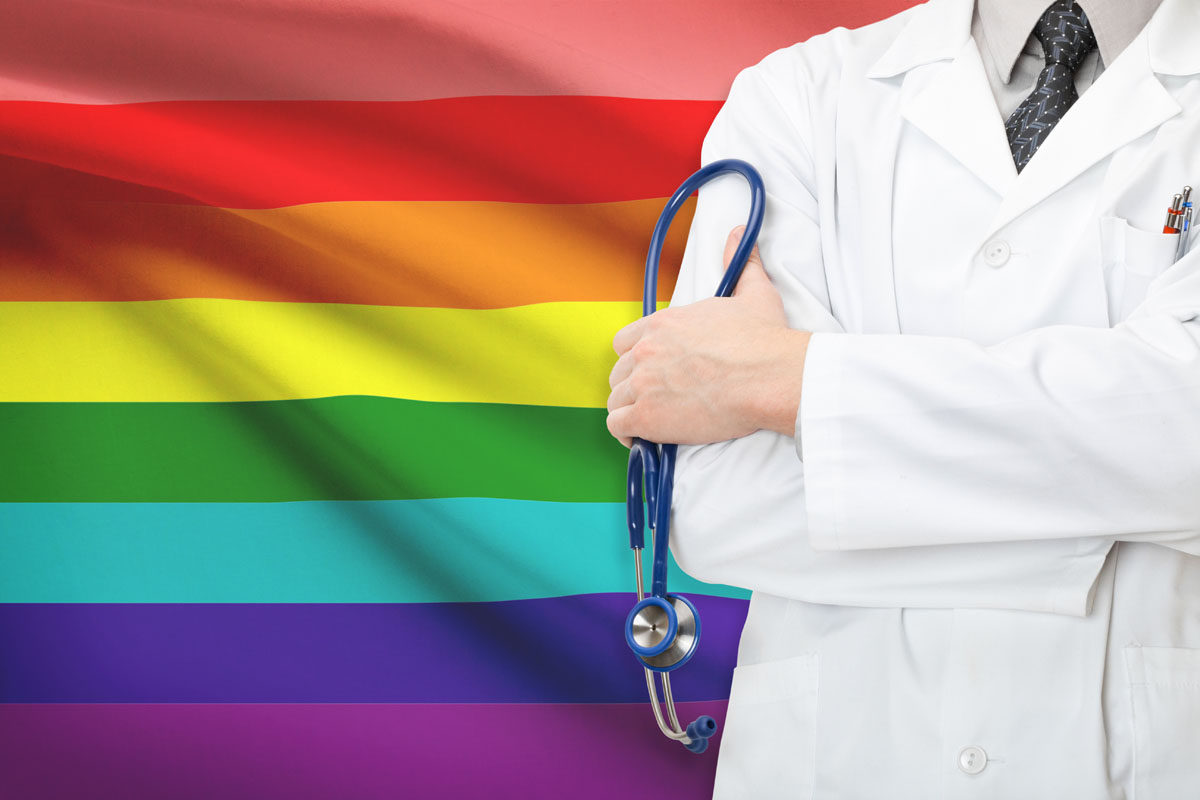My medical school’s first year curriculum dedicates a single hour-long small-group discussion to explore how one should conduct a medical interview with LGBTQ individuals. While many of my classmates had good experiences, I did not.
I will spare you the details, but the worst of it was being told by my small-group leader (let’s call her Dr. Carol Frankfurt), that those planning to practice in rural areas need not worry about using inclusive language because “…these people typically move to more urban areas where they feel welcome.”
I couldn’t believe what I was hearing. My jaw dropped. We had a single hour to discuss why it was important not to alienate members of the LGBTQ community with presumptive language and this physician was sitting here, smiling, brushing pronouns and other body and behavior specific language away like it was a waste of our time. Several of my friends later reported similar happenings in their small-groups as well.
Not all are quite this objectionable, but many mentors and small group leaders assigned throughout the medical training process are, to put it gently, neither well-versed in LGBTQ issues nor familiar with the community. Disclaimer: this is at one of the most liberal medical schools in the country.
Back in the room with Carol and the rest of my small-group, I held my tongue for a moment. Then I made what I later recognized was a mistake. I first launched into a rant about how rural communities are actually most in need of inclusive and welcoming providers. Then I changed the subject to the importance of asking how a person would like to be addressed rather than relying on legal name or the electronic medical record. Carol responded by saying, “Now, you have to be careful because that could make people who are not ‘transgendering’ really upset, and you could lose them as patients.” Then I launched into my rant about health disparities among trans populations. I went on to explain how the concern she raised, beyond being beside the point, pays no mind to the significance of misgendering a trans or gender-nonconforming person, which would make a bad start to an appointment for a person who was likely already hesitant about seeing a healthcare provider in the first place. I didn’t even touch the phrase “transgendering”––by that point she had already cut me off saying, “Well you just need to think about it more. Maybe once you have more experience with patients you’ll feel differently.”
 Needless to say, medicine is an extremely conservative field on the whole. It's incredibly white, incredibly male, incredibly heteronormative, incredibly cisnormative, and it’s also incredibly hierarchical in nature–– we learn from those who are many years our senior, who tout both great power and position over us. When instructors make a homophobic or transphobic comment, or when they let slip their bigotry in other ways, we students––especially we queer students–– are presented with a decision that often leaves us sick to our stomachs: is calling out our superior and advocating for accurate representation a professional sacrifice we can afford to make? I would like to say “how is that a decision you even need to measure?” but unfortunately, we have a long way to go before anyone can fairly ask that question.
Needless to say, medicine is an extremely conservative field on the whole. It's incredibly white, incredibly male, incredibly heteronormative, incredibly cisnormative, and it’s also incredibly hierarchical in nature–– we learn from those who are many years our senior, who tout both great power and position over us. When instructors make a homophobic or transphobic comment, or when they let slip their bigotry in other ways, we students––especially we queer students–– are presented with a decision that often leaves us sick to our stomachs: is calling out our superior and advocating for accurate representation a professional sacrifice we can afford to make? I would like to say “how is that a decision you even need to measure?” but unfortunately, we have a long way to go before anyone can fairly ask that question.
Recently, as part of a Sexual Health and Sexuality Preclinical Elective I am taking, I had the opportunity to see Gen Silent, a 2010 documentary film directed and produced by Stu Maddux. The documentary follows the lives of six LGBT seniors living in the Boston area who must decide whether or not they will hide their sexuality in order to survive in the long-term health care system. In more ways than I care to admit, I feel pressure to make a similar decision. I started thinking more and more about the interaction I had with Carol back in my small-group session. Can I afford to tell someone evaluating me that their beliefs and conduct are inappropriate? Can I afford to tell my instructors they are wrong? The bigger question then became, If I cannot, then what is there to do when I believe so strongly that to remaining silent is to remain complicit? When I found myself first wrestling with this problem, I turned to my peers. I was relieved to discover that I was not alone in struggling to find satisfying answers to such troubling questions. I am now going to use the royal “we” for just this reason.

Speaking up will not always come back around to hurt us. Some of our mentors are open and willing to listen and change their outlook. Still, all too often, we are met with closed minds and reassurances that we don’t know what we’re talking about. Unfortunately, taking a stand for what we believe is right against the wrong person can leave us with scathing personal evaluations and low marks. We depend on each of our instructors for letters of reference and contacts with other physicians. Much like in the professional world, we cannot pick and choose to whom we have to report. Ironically, and what feels like paradoxically, to assert ourselves in opposition to our instructors to defend the humanity of LGBTQ people–– our future patients–– may prove detrimental to our careers and ultimately to our ability to serve those patients. Further, it may set us back along the path to holding positions that do let us speak up and speak out on behalf of our marginalized communities. There are so many moments where we need to stand down so we can fight again another day, but how do we reconcile doing so when "picking and choosing our battles" feels like surrender?
To this, I do not have a good answer. For me, not speaking up and confronting someone will probably always feel a little bit like surrender. What I have to remember is that it can also seriously get me into trouble, as it did with Carol. What I learned, though, is that beyond the risk of challenging her professional authority, my soap-box and emotional energy was wasted on her.
In those moments where the risk of confrontation outweighs the reward, I try to keep perspective. I hold my tongue, take several deep breaths, devise a short term plan––if I can’t call the person out, I find another way to address the specific problem–– and I remember my long term plan, which is what I cannot risk sacrificing and why I need to hold my tongue. My long term plan is to become a surgeon and perform gender affirming procedures for trans individuals. As much as it kills me not to call out microaggressions, with certain physicians I know I can do more good in the long run by keeping my head down and my mouth shut.

As for my short term plan for how to address the issues Carol and other small-group leaders presented, my peers and I realized that rallying behind our shared beliefs and objections in order to mount a formal complaint with a more sympathetic and more influential administrator was much more effective than spinning our wheels. That’s right, we went over Carol’s head and tattled. But in a mature and professional way. Sometimes, it’s actually easier to change systems than it is to change stubborn minds, and in this case, that proved true.
On paper, it sounds like medicine is going in the right direction; increasing attention is being paid to social determinants of health, for instance, as the NIH only just recognized the LGBTQ community as a population that faces health disparities. Yet, as my anecdotes hopefully illustrate, there is still so much progress to be made on the ground.
In an effort to catalyze a much needed shift in medical culture, my peers and I are taking experiences like these and using them as teaching tools, organizing out in the community, taking it upon ourselves to teach our peers outside the more normative curriculum so that with the passing of the guard, this next generation of physicians will be more educated, informed, and open to serving people who are different from themselves.
Note: Point is an advocate for LGBTQ visibility and looks to our scholars to be visible change agents for the LGBTQ community. However, homophobia and bias still exist in academia, and in the interest of protecting our scholar from possible retribution, we have agreed to withhold the author’s name.
This post was not edited by Point.

